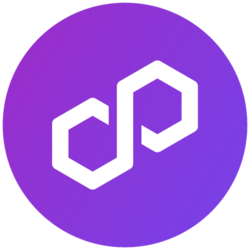
Polygon Integrates Celestia: A New Data Solution for Layer-2 Developers
- Celestia to join Polygon's Software Tools as a Data Availability Solution
- Celestia Merges with Polygon
- Celestia: A New Addition for Blockchain Data Solutions
- Implications for Web3
- Ethereum's Strategy and Alternative Solutions
- Polygon's CDK and Celestia
Celestia to join Polygon's Software Tools as a Data Availability Solution
Celestia, a data availability (DA) solution intended to offer a cost-effective alternative for validating blockchain transaction data, revealed on Tuesday its plans to merge with  Polygon$0.967 -3.65%'s software tools. This integration will allow blockchain builders to construct new layer-2 networks on top of
Polygon$0.967 -3.65%'s software tools. This integration will allow blockchain builders to construct new layer-2 networks on top of  Ethereum$2,315 -2.42% using Celestia.
Ethereum$2,315 -2.42% using Celestia.
Celestia Merges with Polygon
The incorporation implies that Celestia will be part of the customizable software stack of Polygon, which is the Chain Development Kit (CDK). The CDK operates on zero-knowledge technology, allowing developers to utilize Celestia's DA solution when creating and instigating their personal layer-2 networks.
Celestia: A New Addition for Blockchain Data Solutions
Celestia, which was launched in October, offers the advantage of significantly reducing the cost of layer-2 networks, as there is no need for constant Ethereum fee payments to store and verify the data. According to information obtained from a press release, Celestia's DA solution will be accessible to developers beginning in early 2024.
Implications for Web3
Polygon's co-founder, Sandeep Nailwal, labeled this integration as the broadband moment for Web3 in the press announcement. He further stated that the capability to initiate a high-throughput ZK-powered Ethereum layer 2 as effortlessly as deploying a smart contract will parallel the impact high-speed fiber had on Web2 applications.
Ethereum's Strategy and Alternative Solutions
While Ethereum has its own methodology for managing data, including a primary step referred to as proto-danksharding, progress has been slow, prompting several independent networks such as Celestia, Avail, and the competing layer-1 blockchain NEAR to present their own data-availability resolutions.
Avail, which was initially cultivated within Polygon, separated from it in March, aligning more closely with Ethereum's roadmap. The shift allowed Polygon Labs to concentrate more heavily on Ethereum-native data availability efforts.
Polygon's CDK and Celestia
As per Tuesday's announcement, developers using the Chain Development Kit of Polygon, specifically those building Validiums, will have the alternative to use Celestia. Polygon may eventually provide other DA solutions, such as Avail, when they become viable.
According to a representative of Polygon Labs, Polygon CDK permits developers to construct with zkEVM options, like rollups and validiums. Developers building validiums with Polygon CDK can now choose Celestia for data availability, with the potential for other solutions to integrate with Polygon networks in the future.
Avail, managed by Anurag Arjun, a co-founder of Polygon, recently introduced a test network and is projected to go live in 2024.
How do you like the article?
Join the discussion on
You may also like
 Jonathan Stoker
Jonathan Stoker